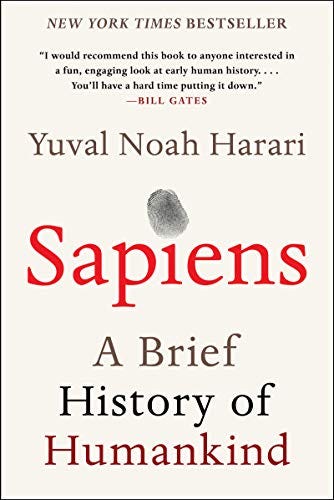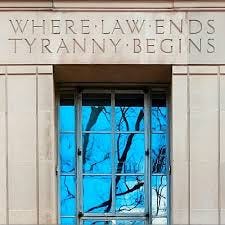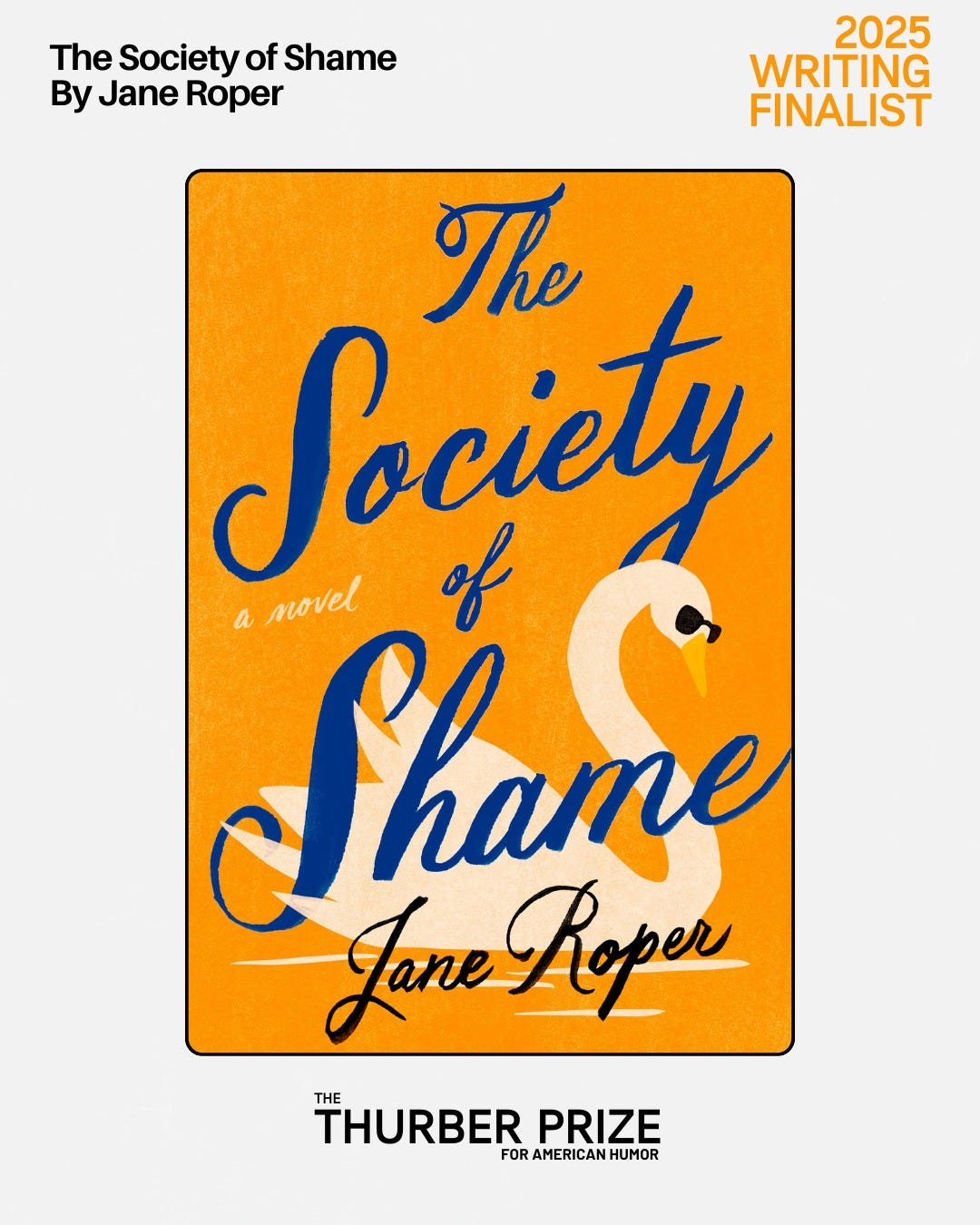The story has changed
We're being force-fed a new American narrative—and our homo sapiens minds are spinning.
Buckle up, buttercups, because I’m gonna get a little academic on your asses in this post. A little philosophical, a little political, a little evolutionary. A little bit country, a little bit rock and roll. I’ll make it quick(ish), and there’s no test at the end. I promise.
It’s just that I’ve been feeling awfully unsettled of late—as I think many of us are—and I’ve been trying to get a handle on why. I mean, I know why. Our country is being taken over by an authoritarian regime, the stock market is tanking, and it’s not clear just how much worse things are going to get. (Significantly, I fear.)
But there’s something much more profound happening, too, and I think it’s why the current political situation is so difficult on a psychological level for many of us.
It has to do with the very thing that makes us human.
I was an anthropology major in college. To this day, I’m a sucker for books about evolution and ancient human civilization. Over the past seven weeks, I’ve been thinking a lot about one such book, which I gobbled up when it came out ten years ago: Yuval Noah Harari’s Sapiens: A Brief Human History of Humankind.
In Sapiens, Harari offers up his explanation for why homo sapiens came to be the dominant homo species on earth, and why we’ve been able to do what other no other species has—create cities and kingdoms and countries and whole civilizations.
What it comes down to, he says, is our unique cognitive capacity for imagination. We’re the only species with the ability to make up and communicate fictional stories.
As he puts it:
Many animals and human species could previously say ‘Careful! A lion!’… Homo Sapiens acquired the ability to say, “The lion is the guardian spirit of our tribe.”
Our ability to share and buy into those stories, Harari argues, is what makes human civilization as we know it possible:
“Fiction has enabled us not merely to imagine things, but to do so collectively. We can weave common myths such as the biblical creation story, the Dreamtime myths of Aboriginal Australians, and the national myths of modern states. Such myths give Sapiens the unprecedented ability to cooperate flexibly in huge numbers. Ants and bees can also work together in huge numbers, but they do so in a very rigid manner and only with close relatives. Wolves and chimpanzees cooperate far more collectively than ants, but they can do so only with small numbers of other individuals that they know intimately. Sapiens can cooperate in extremely flexible ways with countless numbers of strangers. That’s why Sapiens rule the world, whereas ants eat our leftovers and chimps are locked up in zoos and research laboratories.”
He goes on to write about all kinds of stories humans tell, and the systems and institutions we create based on those stories. Money, for example. We’ve all bought in to the story that certain pieces of paper and metal with particular numbers and designs on them have value relative to other things—goods, services, experiences, etc. And, moreover, that they have value relative to money from other defined sections of land on the planet. It’s kinda crazy when you think about it.
Money is a story. Borders are a story. Religions are stories. Class and caste and tribe are stories. The concept of superiority based on race or gender (bad word! shh!) is a story, as is the concept of human rights. Values and belief systems and systems of government are stories.
We very smart apes buy into these stories and countless more, choosing some of them intentionally, being born into others. Some are shared by massive populations, others by sub-populations within them. They undergird our reality, whether we’re conscious of them or not.
National identity is a story. America is a story. And until recently, I didn’t realize just how present that story was (is) in my psyche.
I’m not what you’d call a patriotic person. I’ve never liked pledging allegiance, I don’t love standing for the national anthem, and phrases like “the greatest country in the world” make me roll my eyes so hard I can see the person standing behind me. If you ever catch me chanting “U.S.A.” it’s because I’ve been possessed by a demon. Please keep your distance and call the relevant authorities.
I am just too cognizant of our country’s many sins and shortcomings to get all misty about the stars and stripes. Also? There are a lot of great countries in the world. And also? What even are countries, man? Borders are just a story perpetuated by power-hungry men. We’re all just one big human family. Pass the bong.
But it turns out I do, in fact, carry a certain story of America around with me, which I learned from a young age. You probably carry it—or some version of it—around with you too.
That story says that we believe in laws, not decrees. Democracy, not autocracy. Throwing off the yoke of tyranny is our creation story. We believe in electing leaders, and that those leaders should use their authority thoughtfully and deliberately, bounded by laws and norms. We are not a country where, for example, its ok for leaders to punish people or institutions whose opinions or actions they don’t like, or go around the constitution to get things done.
The American story also says that freedom of speech is sacred. Freedom to protest, to publish, to dissent, to express ideas of any stripe is central to who we are. In America, people are not arrested and detained for their political beliefs. We don’t make lists of words that shouldn’t be used.
Another central part of the story of America, at least since the Second World War, is that we should be a force for good in the world. (I know, there are a lot of holes to be poked in this, but just go with it for now, mmmK?) We support and, if necessary, defend other countries that share our belief in freedom and democracy. We do not threaten or bully or disrespect their leaders. We are loyal to our allies, especially those nearest and dearest. We do not cozy up to dictators.
Finally, we believe in using our wealth, and the talents of our people, to accomplish great things in the realms of science, medicine, technology, education, humanitarian aid, conservation, and the arts—not just for the betterment of our own country, but the whole world. We respect the institutions and experts and workers who make all of these things possible.
This is a story that millions of us collectively share, whether we’re aware of it or not. It forms the scaffolding of our nation. It knits us together as not just a random bunch of homo sapiens occupying the same land mass, but a country. Is it an idealized, aspirational story? Hell yes. Are there instances when the reality of what we do is at direct odds with what we profess to believe? Absolutely. Countless instances. But it’s our story nevertheless.
Over the past decade, though—and then with truly alarming speed over the past two months—the story has changed.
And this is why I think what’s going on right now is much bigger than the sum of the various terrible things happening—and why it feels bigger, too. This is not just “these are problematic developments.” This is “The lion is the guardian spirit of our tribe” being changed, after two hundred and fifty years, to “The naked mole rat is the guardian spirit of our tribe.” (No offense to naked mole rats.)
We, the homo sapiens of America, are being told that there’s a new American story, now. It’s authored by a bunch of incompetent fascists and Christian nationalists and tech bro billionaire creeps and the many Americans who support them. In this story, the president is more like a king, following the law is optional, loyalty is more important that competence, allies are expendable, science and universities and the press are suspect, and the government can ban “ideologies” or disappear people that they disagree with.
And that’s, like, a really different story.
It’s no wonder so many of us are feeling not just unsettled, but disoriented and shaken to the core.
Some people are eagerly embracing the new story, either because it’s in their best financial and political interest to do so, or because they actually like it.
But it’s a supremely shitty story.
My fellow homo sapiens (and any homo neanderthalenses reading this—good for you!) we need to fight like hell to hang on to the old story. We need to shout it in the streets (I like using a bullhorn for this myself) and on the Substacks and everywhere else. And if we’re lucky enough to keep it, we need to live up to it more completely and consistently—to actually ensure liberty and justice for all. To become a more perfect union.
God damn, listen to me, all patriotic.
It turns out you just don’t know how much a story means to you—how elemental it is to your view of the world—until someone comes along and tries to change it.
Those someones can go to hell.
All posts on this apparently patriotic Substack are free and publicly available, but writing is how I make my living. If you enjoy my work, please consider upgrading to a paid subscription (As little as $4.16666 a month! Cheap!) or buying my book. Thank you.








This is a phenomenal post, Jane. Thanks. xxx
Thank you for this! I’ve been struggling, and this articulates the depth of the betrayal of trust that has successively been demoralizing ( literally- “de-moralizing”) our country (from all
Parties). It helps to capture in words what is wrong, so you can find a starting place in action and response